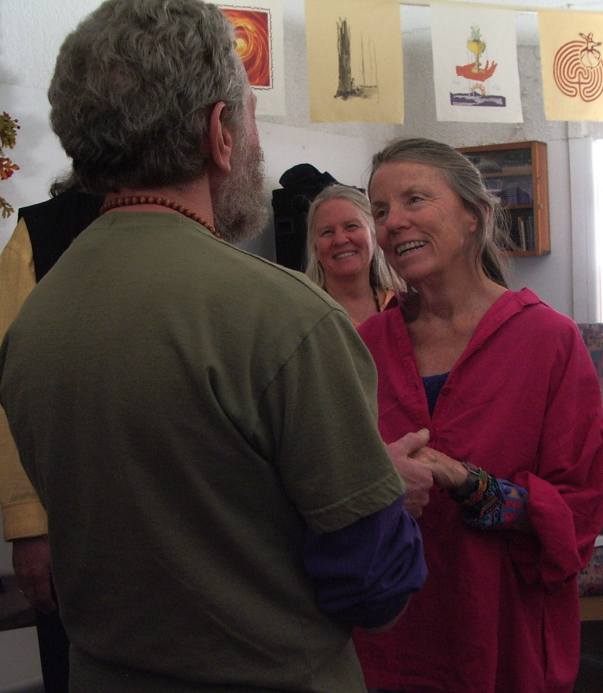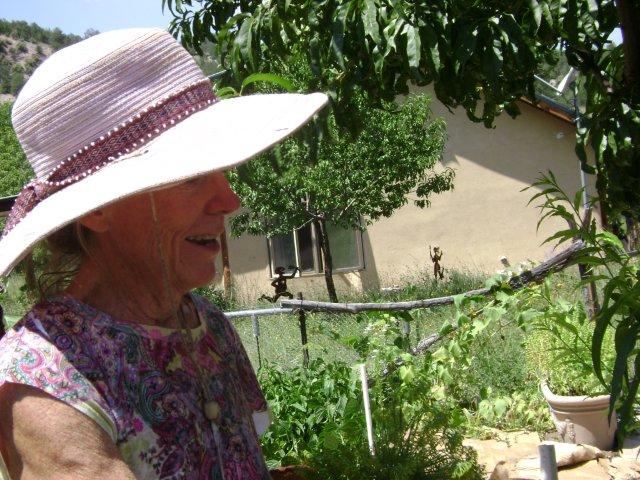| ||||||||||||||||||||||||||
Heaven on Earth |
Many young adults I talk to today have a passionate interest in sustainability… understandably…since they may be the first to reach the cliff for which we seem to be inevitably heading! But many of us, no matter what our age, look longingly toward ways of living naturally and sustainably, not out of fear, but out of love and gratitude for this magnificent, sacred nature that is the fabric of our lives, the display of God, our scripture, guide and teacher. At the same time we are hopelessly entwined in world systems and find ourselves caught in incongruent actions like putting environmental stickers on the bumpers of our SUVs and recycling plastic bags instead of simply not using them. It is difficult for most of us to imagine a way to disengage from this modern entanglement. Today the word ‘sustainable’ is so dishonestly used by corporations and governments that it has become a mockery: giving cosmetic lip service by using labels like ‘green’, while all the time encouraging us to worship the idols of consumption, shopping malls, cars, technology, “growthism”, power and money. Actually realizing sustainability would require far more. John E. Carroll in his book Sustainability and Spirituality says it would require ‘a conversion experience” in the depth of our being. That is to say, it requires a spiritual realization: a knowing that gives us faith in what is greater than ourselves - in mystery and nature, in the cosmos and the gods. Today there are (and have been throughout modern history) living models of sustainability: residential, spiritual communities where the emphasis is on being, becoming, presence and awareness rather than ‘having’ and production, and where freedom is found “in” work (rather than “from” work) in the practice of “work as devotional prayer”. Here we can see practitioners living the values promoted in the classical scripture of all spiritual traditions, exchanging modern ‘needs’ for pooled resources, joyful simplicity, companionship, rest, physical work, silence, and communal practice. When we come together at dance camps we ourselves get a taste of this kind of lifestyle: living simply in nature for a week and sharing spiritual practices. As we take up temporary residence in spiritual community, we can look at the spiritual values common to all major traditions (what Hazrat Inayat Khan calls the Unity of Spiritual Ideals) to see how they point us toward sustainability and simplicity, and how such values can help us to reshape attitudes that keep us from moving in this direction. It seems like a ripe time for younger generations and those of us who were courageous innovators in the 60’s and are part of a what Morris Berman calls the new monastic society (those of us who do not live in community but who do not ‘buy into’ mainstream values), to join hands and hearts in looking for ways to create a more reasonable world.
"The proving ground of spiritual practice is everyday life." - Pir Moineddin Jablonski
|
A person who is vegan will save 1,100 gallons of water, 20 pounds CO2 equivalent, 30 square feet of forested land, 45 pounds of grain and one sentient animal’s life1 every day. On any given acre of land we can grow twelve to twenty times the amount in pounds of edible vegetables, fruit, and grain as in pounds of edible animal products. We are essentially using twenty times the amount of land and crops and hundreds of times the water, as well as polluting our waterways and air and destroying rainforests, to produce animals to kill and eat … which is unhealthier than eating the plant products we could have produced. |

